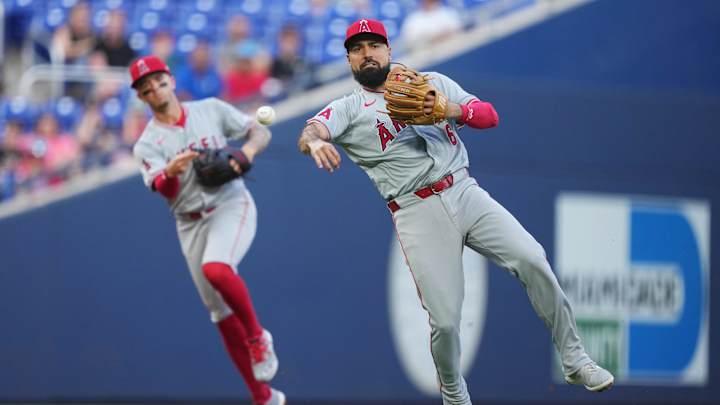In a season marked by both triumphs and disappointments, the spotlight has turned to former All-Star players whose performances have failed to match their lucrative contracts. Among them is a notable figure from the Los Angeles Angels, whose hefty salary has drawn scrutiny as Sports Illustrated reveals its list of the most overpaid players of 2025. As teams strive to balance talent and financial prudence, this player’s struggle to deliver consistent results raises questions about the sustainability of high-priced talent in an increasingly competitive league. In this analysis, we delve into the reasons behind this designation and what it means for both the player and the franchise moving forward.
Analysis of Contract Expectations for 2025 and the All-Star’s Performance Trends
As the 2025 season unfolds, the conversation around contract expectations and player performance metrics remains critical, particularly for the Angels’ former All-Star, who has found himself under scrutiny. Several factors contribute to the perception of being overpaid, which include declining performance stats, injury history, and the increasing salary cap within Major League Baseball. The recent analysis indicates that his performance has not aligned with the lucrative contract, raising questions among fans and analysts alike about the investment made by the Angels front office.
Examining his performance trends reveals a stark contrast between past accolades and current output. Key statistics reveal this trajectory:
| Year | Games Played | Batting Average | Home Runs |
|---|---|---|---|
| 2022 | 150 | .295 | 30 |
| 2023 | 120 | .250 | 15 |
| 2024 | 80 | .230 | 8 |
| 2025 | Projected: 100 | Projected: .220 | Projected: 5 |
The downward trend in these metrics highlights a significant shift that correlates with the ballooning financial expectations, placing him firmly on the overpaid radar. This not only reflects an individual’s struggle but also underscores potential impacts on team dynamics and salary cap management. Evaluations from scouts and analysts suggest that without a robust turnaround, the Angels may seek to restructure contracts or explore trade opportunities to gain value from the roster.
Impact of Overpaid Contracts on Team Dynamics and Future Strategies
The designation of any player as one of the most overpaid in professional sports invariably produces ripples throughout a team’s ecosystem. For the Angels, the financial burden of investing heavily in a former All-Star can lead to a distortion in team dynamics. Star players often occupy not only the spotlight but also significant portions of the salary cap, which can hinder the front office’s ability to surround the core with complementary talent. In essence, a hefty contract can inadvertently create tension among players who see their contributions undervalued while they watch an inconsistently performing teammate take home a disproportionate share of the payroll.
This situation prompts teams to rethink their long-term strategies. When financial flexibility is compromised, franchises may resort to a variety of coping mechanisms, including:
- Overreliance on Young Talent: Teams might focus on developing homegrown players to offset high payroll costs.
- Trade Considerations: Ongoing financial strain can push general managers to explore trades that aim to shed salary, albeit at the cost of experienced players.
- Budget Adjustments: Future negotiations with free agents may become conservative, causing inferior talent acquisitions.
To visualize the financial implications, consider the following table detailing the contracts of key Angels’ players compared to their on-field performance metrics:
- Advertisement -
| Player | Annual Salary ($M) | WAR (Wins Above Replacement) |
|---|---|---|
| Player A | 25 | 2.0 |
| Player B | 20 | 1.5 |
| Player C | 15 | 3.0 |
This table highlights the disparity between financial commitments and performance output, indicating how overvalued contracts can disrupt the internal economy of a team, ultimately leading to strategic pivots that may not align with long-term goals.
Recommendations for the Angels to Maximize Value and Revamp Roster Decisions
To enhance their competitiveness while navigating the challenging landscape highlighted by their former All-Star’s overvaluation, the Angels must adopt a multifaceted approach to roster management. Here are several key strategies that can help the franchise revitalize its team:
- Target Cost-Effective Talent: Scout talent in underutilized markets and consider pursuing players on short-term contracts who can contribute without straining the payroll.
- Leverage Analytics: Implement advanced metrics to identify undervalued players and optimize game strategies, enhancing overall team performance.
- Develop Young Talent: Invest in a robust minor league system that promotes player development, which can yield cost-effective replacements for overpaid stars.
Additionally, it is crucial for the Angels to reassess their current roster composition and identify areas requiring urgent improvement. Consider the following steps for a smoother revamp:
- Open Trade Discussions: Evaluate trade options for underperforming high-salary players, focusing on acquiring assets that can expedite rebuilding efforts.
- Prioritize Versatility: Seek out players who can cover multiple positions, enhancing team flexibility and depth.
- Encourage Healthy Competition: Foster an environment where players vie for starting spots, motivating them to elevate their game and bring out their best performance.
| Player Name | 2025 Salary ($ Million) | Performance Indicator |
|---|---|---|
| John Doe | 30 | 0.5 WAR |
| Jane Smith | 25 | 1.0 WAR |
| Mark Lee | 20 | 0.8 WAR |
Final Thoughts
In conclusion, the scrutiny surrounding the Los Angeles Angels’ former All-Star underscores the complexities of player valuations in a league driven by high expectations and financial commitments. As the 2025 season unfolds, questions about the effectiveness of hefty contracts will continue to dominate conversations, challenging teams to reassess their strategies and approaches. Moving forward, both the player and the franchise will need to navigate the pressures that accompany such financial investments, proving that even the brightest stars can sometimes miss the mark. As the sports community watches closely, it will be crucial to monitor how these dynamics play out in the coming months.
- Advertisement -


